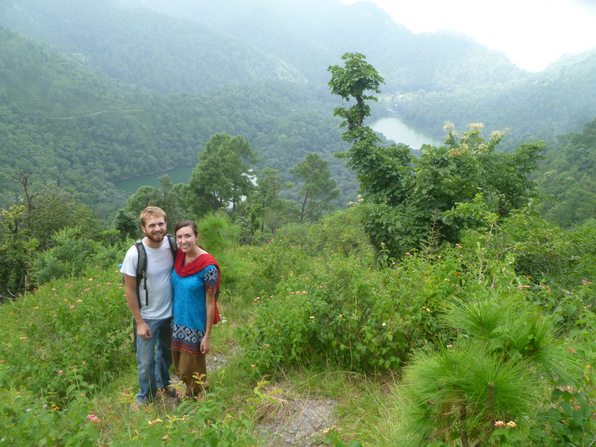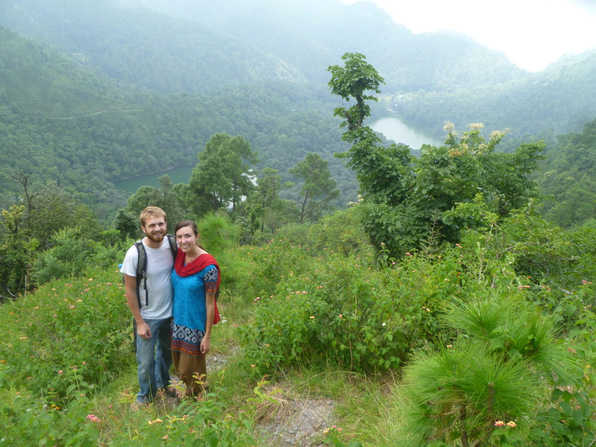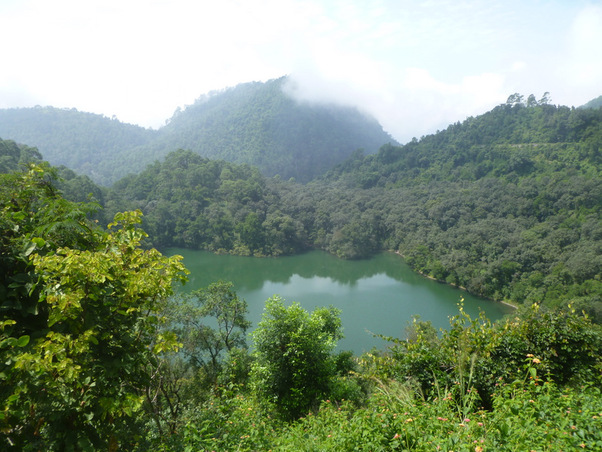But God’s goodness is there in the generosity of our landlady, bringing us some of the hot meal she’s just prepared for her family because she wants us to share the experience of a traditional food we’ve never eaten before. I see Joy in the smiles of our youngest neighbors; I see Mercy in the love and concern that young mothers demonstrate in responding to the feeble cries of their helpless newborn babies who rely on them for everything. And I experience Grace when God carries me through days of anger, stress, exhaustion, or sadness through the support of my husband and my friends. Sometimes it takes a different kind of eye to recognize God With Us in the places where human brokenness has taken its toll, but when we find God there, we have found Her in the place She most desires to dwell with us.

Eyes to see
A few days away in the mountains was the perfect retreat after a busy month of hosting visitors. The first day when we arrived at the remote ashram in the forest, we were overwhelmed by the natural beauty around us. When the silence wasn’t making our ears ache, the gentle music of birds and insects in the trees was reminding us of life’s original soundtrack—one that we had nearly forgotten amidst the mechanical roar of city life. We sat through a rainstorm marveling at the genius of evaporation and clouds condensing and water falling out of the sky to water acres or square miles of plants at a time. I literally started crying thinking about the goodness of God while we watched the water falling in sheets over the unspoiled wilderness and the emerald lakes in the valleys below. At nighttime, we remembered how many stars are in the sky, because for the first time in months they weren’t obscured by city lights.
Sometimes it’s easier to feel that God is present in all of Her gentleness and goodness when I’m surrounded by the beauty that She created. God is still present in the city and in the slum, of course, but remarkably it is often more of a challenge to recognize God among the human beings in which She resides than it is to recognize Her in the breathtaking vistas of the mountains, or the beach, or pretty much anywhere else where human civilization hasn’t crowded in. They belong together, of course, nature and human civilization, but they rarely coexist well… the trash-clogged, black, sludgy waterways, the polluted air, the dismal lack of color in many of the big cities I’ve visited around the world comes to mind. Feeling the peace of the mountains, it occurred to me that our alienation from nature in the city is no small thing. Back in my room in the slum, listening to the whir of the fan and the distant horns of traffic and the wail of a toddler in the alley downstairs, I realize that living where I do is a kind of fast—from external silence (though we can’t really live without finding a silent space within ourselves), from stars. I almost think, it’s a fast from beauty, too—but I have to stop myself there. Because there is beauty in the slums, and God’s goodness is still there to be seen. It’s more of a challenge to recognize it, though, because it is hidden amongst the ugliness of poverty, and violence; amid broken systems and relationships that leave trash lying everywhere, leave poor patients at the hospital lying in their own blood for hours before any doctor or nurse pays attention, leave children crying alone in the street with no one to comfort them. There’s a reason that Mother Teresa calls poverty Jesus’ most distressing disguise: in that filth, noise, and desperation, it’s possible for us to miss recognizing him altogether.
I want eyes to see that beauty. I want the will to create more of it; to bring it to greater fullness. I want to uproot the weeds of injustice and fear that are obscure that greater Reality in the same way that streetlights obscure the stars that are still there in the sky. When I think of God’s beauty in that way, then planting a garden, cleaning up trash, sharing a meal, or working to reconcile people to one another all seem like part of the same thing.

